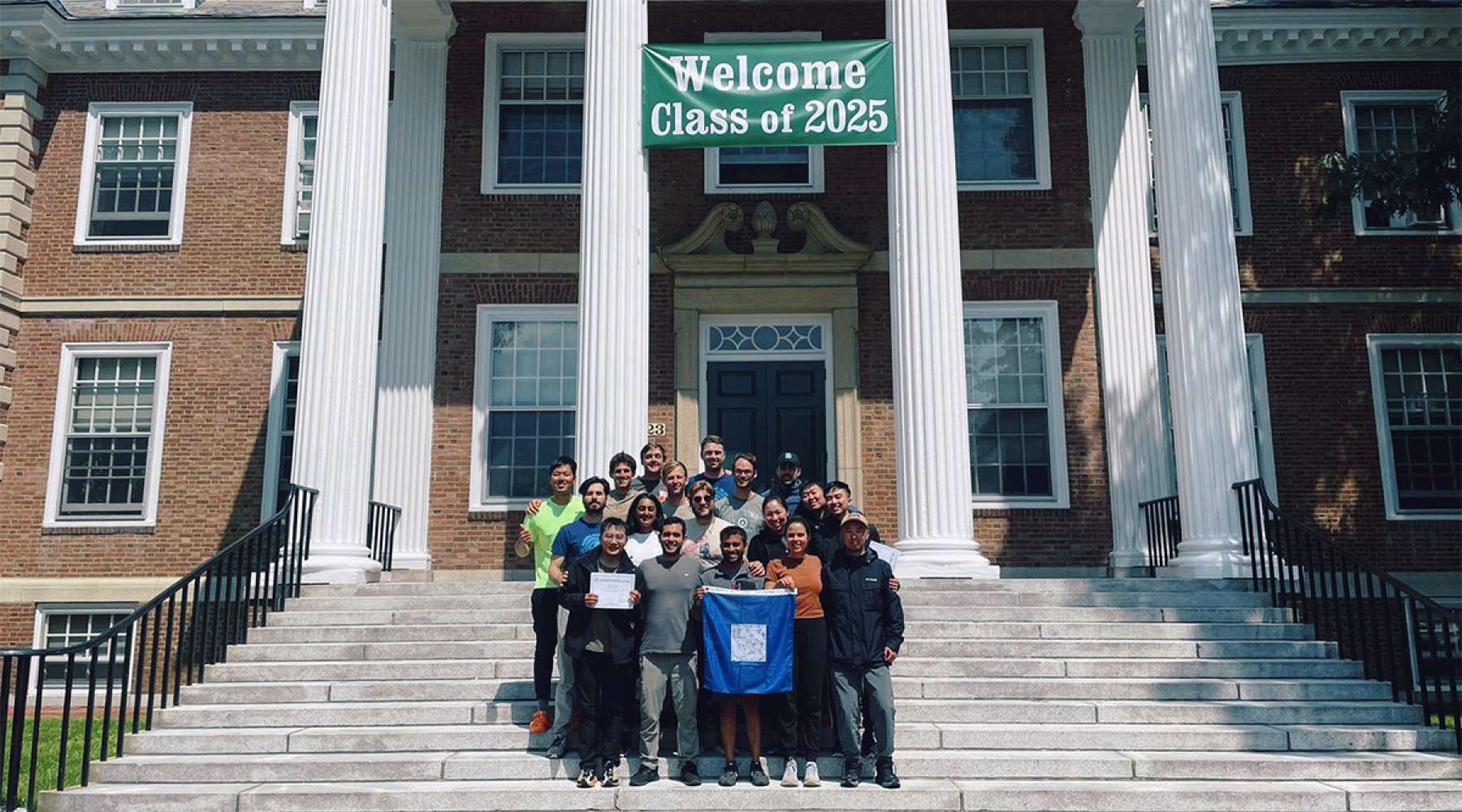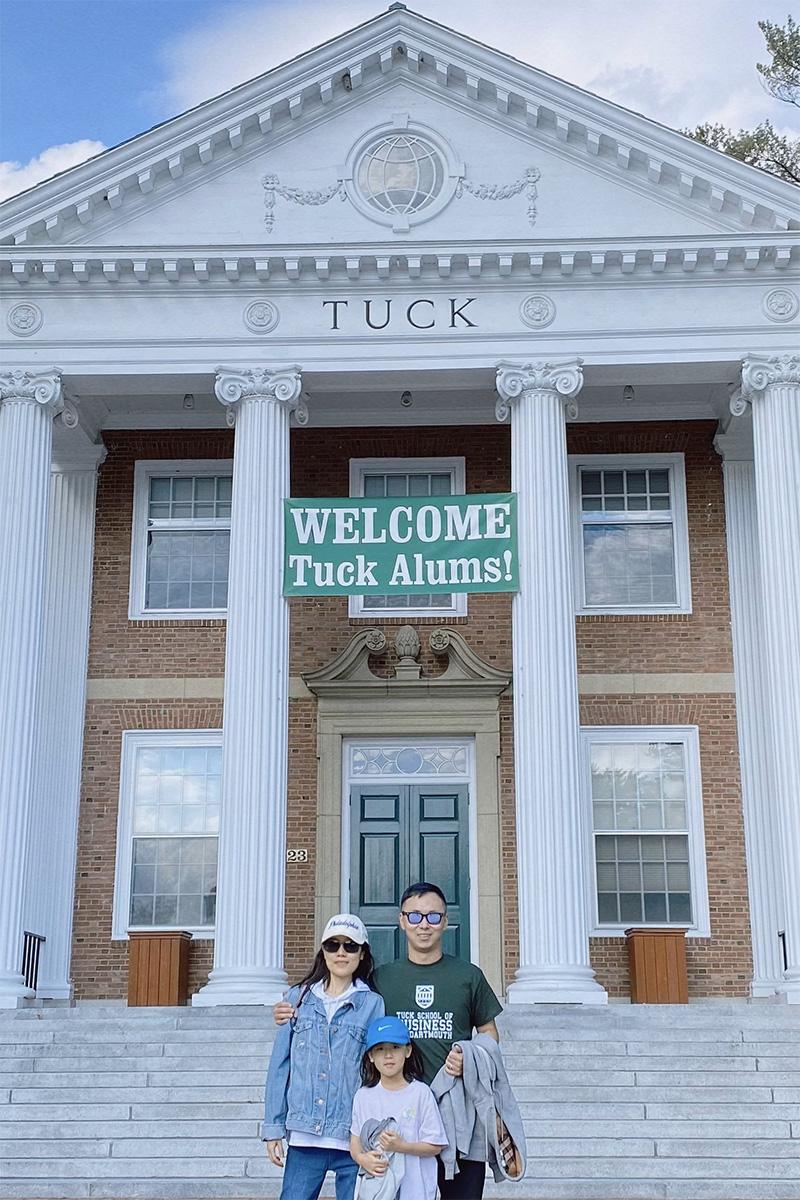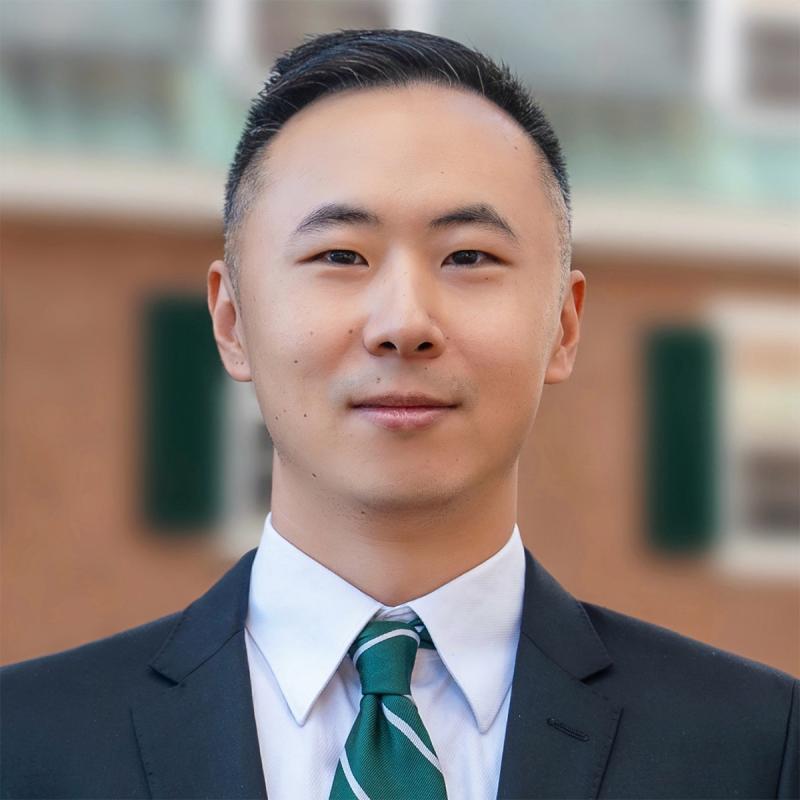
“You’re not the boss anymore.”
These five words echoed in my mind during my first weeks at Tuck. After years of founding and scaling ventures in China, I had grown accustomed to a certain rhythm of leadership. Ironically, during my Tuck interview, when asked to talk about feedback that I received, I had candidly admitted, “I don’t recall one because I was often the one giving feedback...”
So, I came to Tuck to receive feedback, mentorship, and become a better leader—even without a formal title. This transition proved more challenging than anticipated. Without the formal authority I was accustomed to, I needed to develop new strategies for influence and collaboration—skills that required deliberate practice and reflection.
One of the resources I leveraged to address the challenge was Tuck’s Personal Leadership Coaching Program. During a session with my coach, Trip Davis D’90, I shared my desire to emerge as an effective leader in this new environment. “I want to contribute and lead, but I’m struggling to find my way without the formal authority I once had,” I explained. His response offered the perspective I needed: “See Tuck as a risk-free testing ground. This is your laboratory to explore different leadership styles before taking them into the real world.”

Bruce Li T’25 with his wife and daughter during his first visit to Tuck, which happened to be reunion weekend.
This insight sparked a period of active reflection and experimentation. I began observing successful leaders around me, noting how they built consensus rather than commanded action. In study groups and club activities, I consciously practiced listening more and speaking less, focusing on creating value rather than directing outcomes.
The path to improvement wasn’t always smooth. During a team discussion, I noticed that my communication approach when asking a classmate to complete a task came across as overly direct. After reflecting on the interaction, I approached my classmate to discuss it. What impressed me most was their response—instead of criticism, they offered thoughtful insights and suggestions. This experience highlighted one of Tuck’s greatest strengths: a community where authentic growth is not only possible but actively encouraged. Even more surprising was how readily my peers offered honest feedback when asked. The generosity with which my classmates shared their observations stood in stark contrast to my previous experiences, where feedback often flowed in only one direction.
By my second year, I felt prepared to take on multiple leadership roles, and the positions allowed me to give back to the Tuck community that had invested so much in my development. Despite the demands of academic commitments and job searching, I embraced these responsibilities as a chance to create value for first-year students. Each role became a platform to implement the leadership principles I had been cultivating—listening actively, creating opportunities for others to shine, and leading through service rather than authority.
Tuck’s magic isn’t found only in its curriculum or career opportunities, but in the transformative space it creates for personal growth. For me, that meant discovering that effective leadership isn’t about position or authority—it’s about creating positive impact through authentic connection, receptiveness to feedback, and genuine care for those you serve.
My leadership journey continues, but as I prepare for my post-MBA career, I approach the path ahead with newfound confidence. The feedback I once couldn’t receive has become the foundation of my growth, and my struggle has evolved into an appreciation for the insights others can provide and the leader I can become because of them.

Originally from China, Bruce Li T'25 is a serial entrepreneur with ventures spanning consulting, retail, and biopharma. He came to Tuck with his wife and daughter and is transitioning to investment banking post-MBA.